


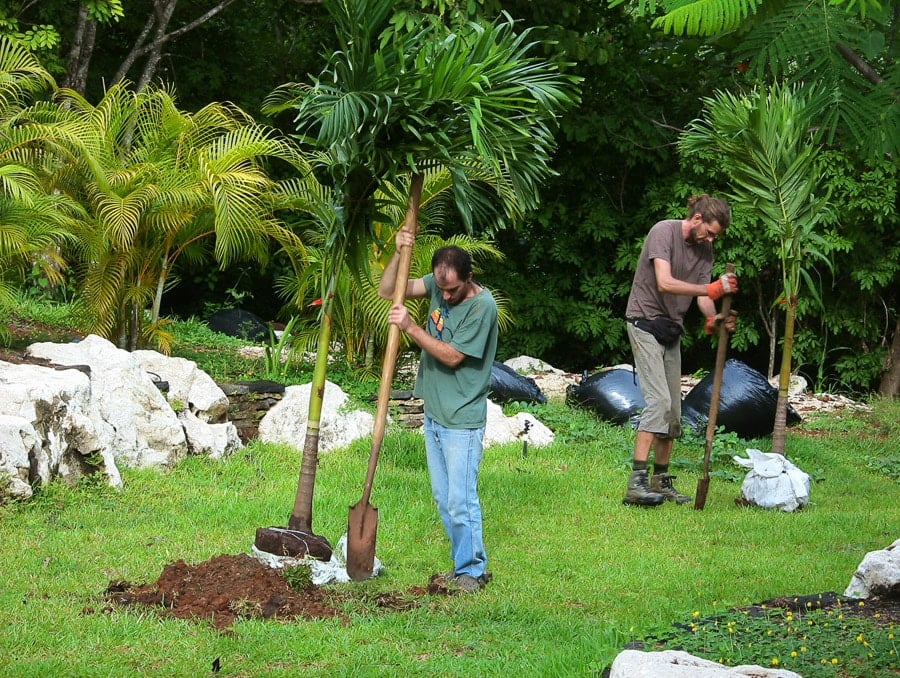
Formerly a cattle farm, PachaMama was a 500-acre land comprised mainly of grassland with very few patches of forest when the founders arrived.
Through the community’s reforestation efforts, it has undergone an immense transformation: thousands of trees have been planted, including rare and endangered species. Now that the land is healed, the wildlife, butterflies, insects, and birds have returned and the ecosystem is thriving.

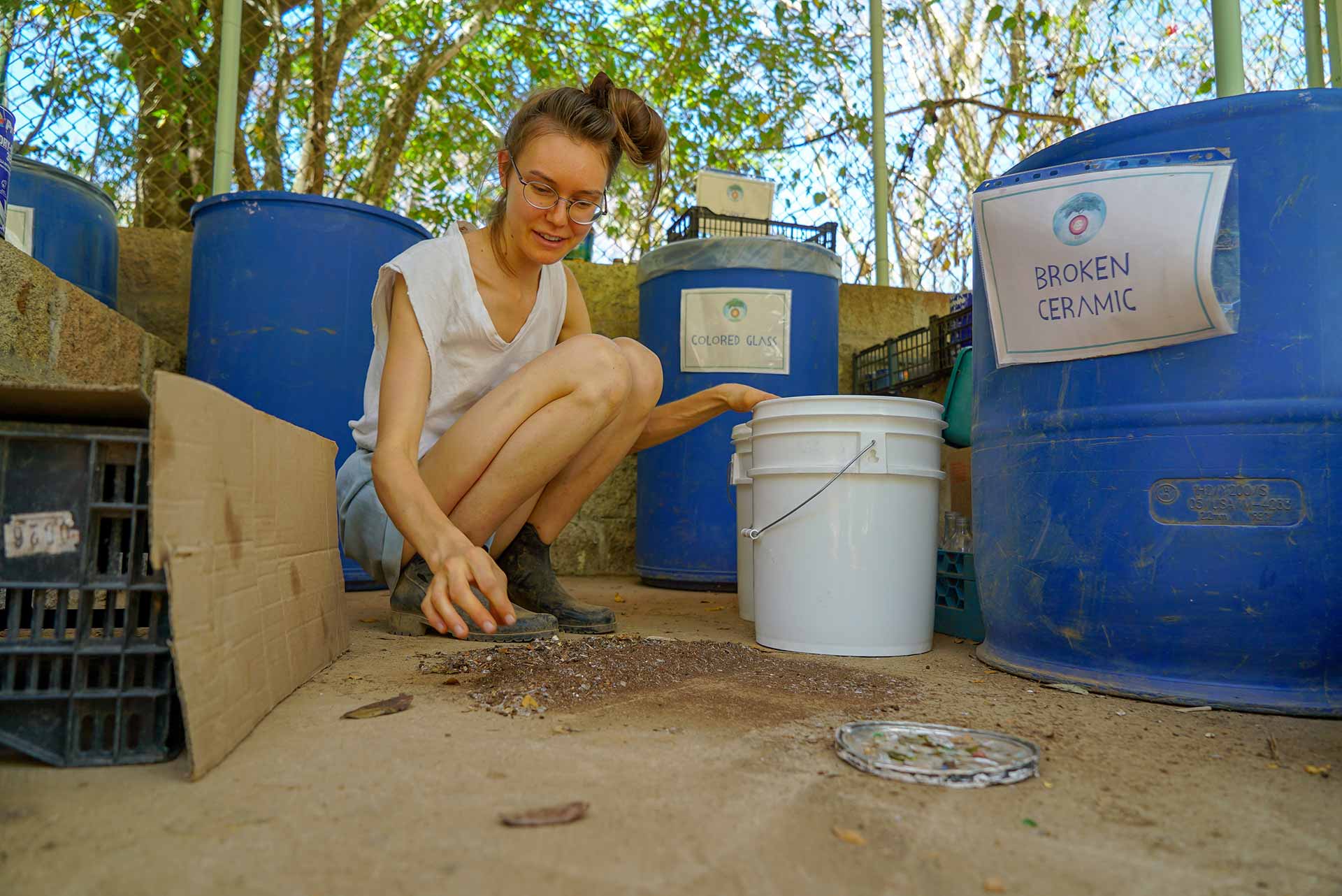
The carbon footprint is also reduced by eliminating single-use packaging such as plastic, tetra packs, and aluminium. The Jungle Shop has minimized the use of plastic by providing only refillable glass and paper containers. In order to protect the water supply, only biodegradable soaps and cleaning agents are sold and used in the community.
Visitors are asked NOT to bring non-rechargeable batteries or plastic waste such as disposable bags and water bottles.

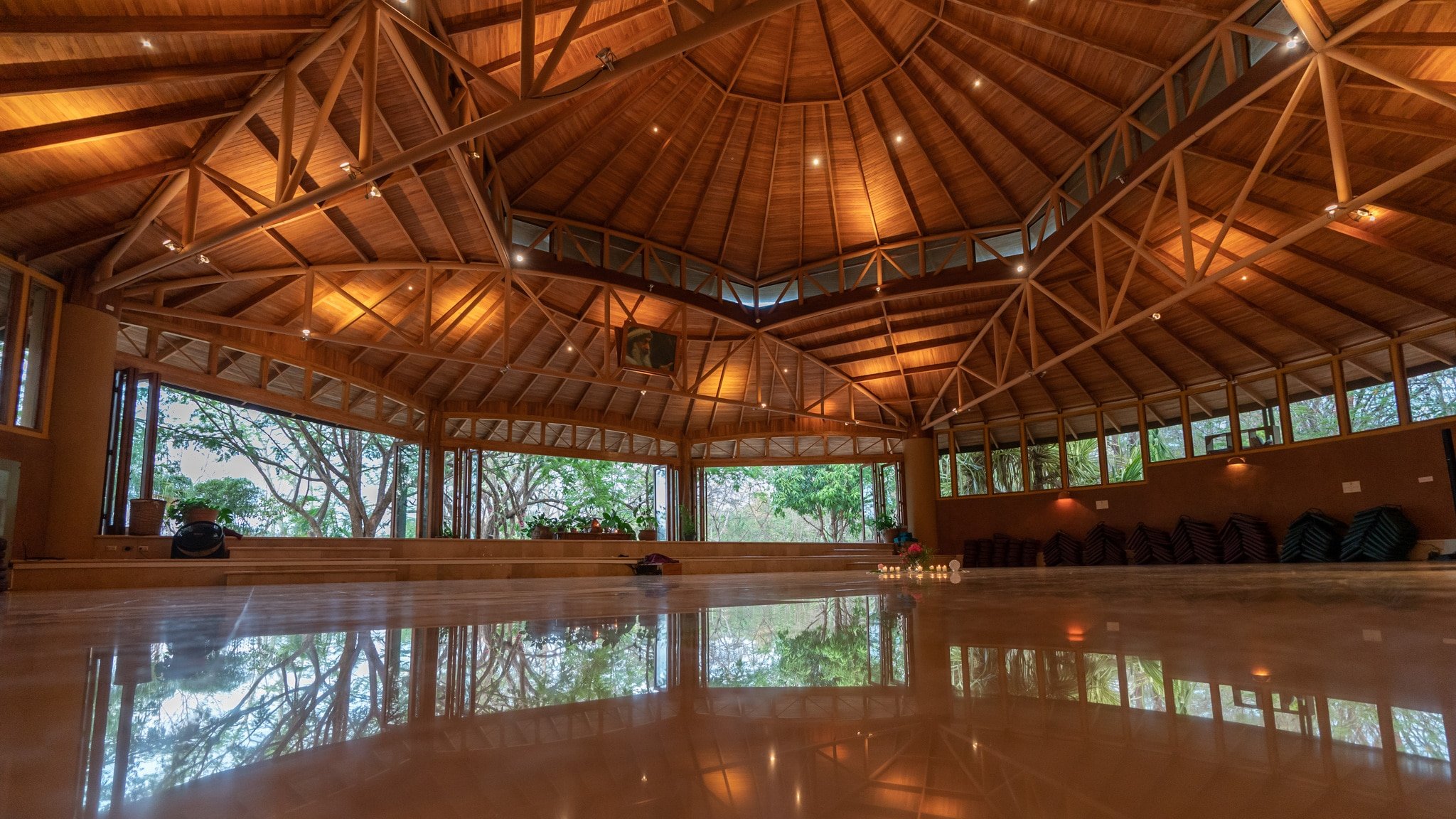
All of the hardwood that is used for construction in the village is from fallen trees. The houses in PachaMama are built below the ridge line, so as not to dominate the peaks but to integrate into the forest. The evolution of the eco-village goes hand in hand with the principles of conservation and respect for nature.

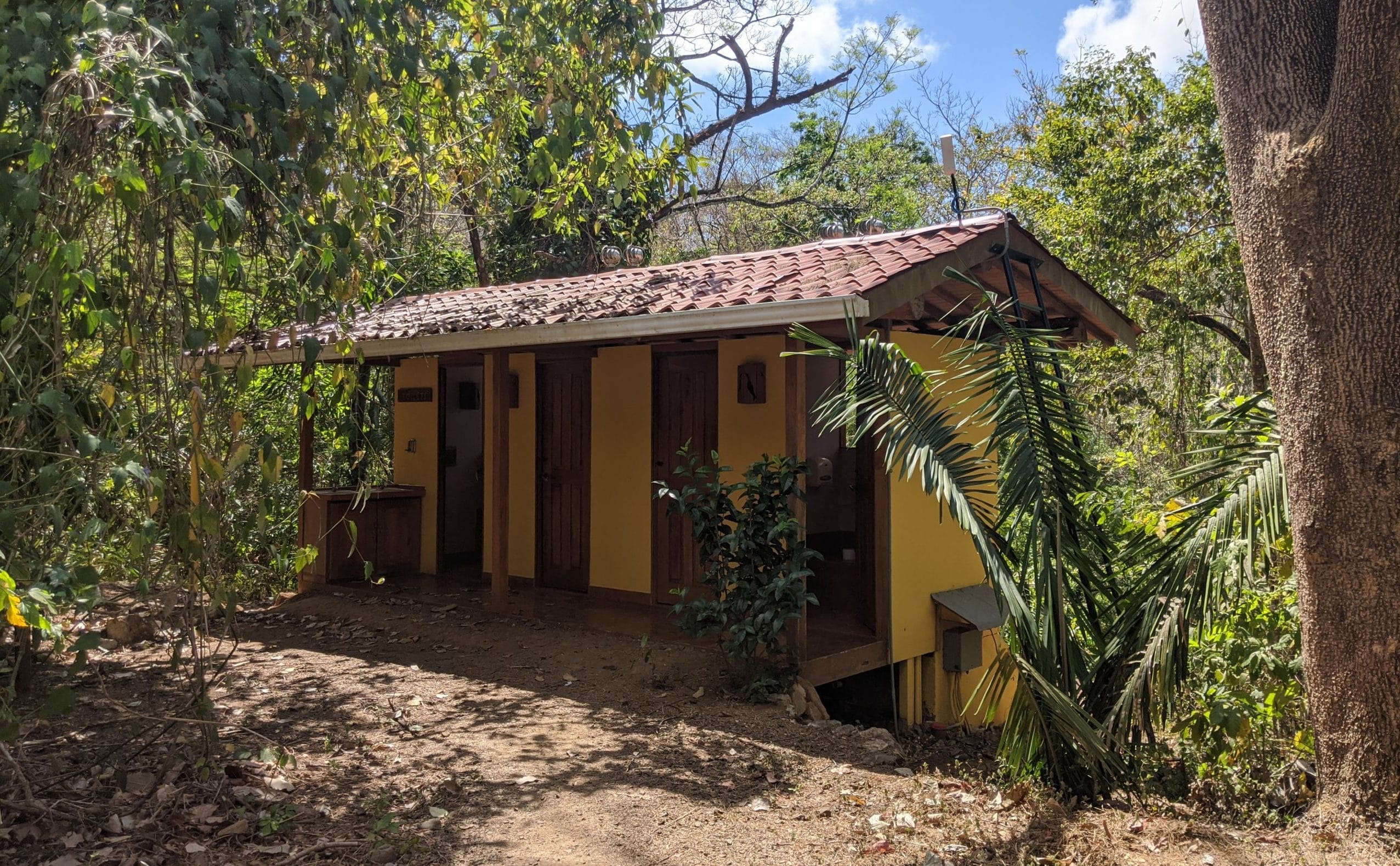
Our compost toilets, located in the main public areas and several accommodation neighborhoods, significantly reduce water usage and help return nutrients to nature.
The waste is responsibly processed and returned to the forest.

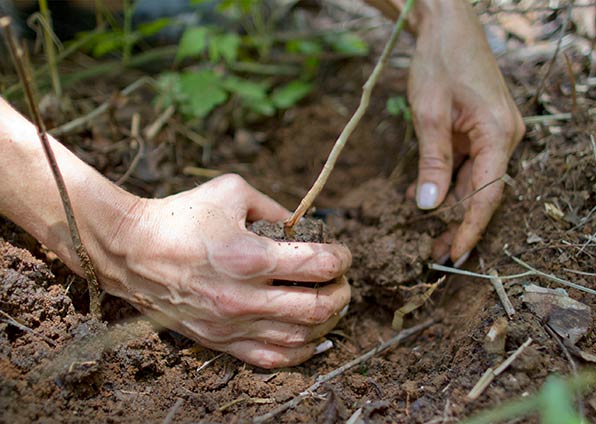
PachaMama has been working on a soil regeneration project aiming to establish a thriving ecosystem that can nurture organic plant growth.
The project involves a blend of organic materials to enrich the soil. Dry leaves and plant matter, nutrient-rich chicken manure, and kitchen-scraps-derived compost are mixed to fortify the earth. Additionally, biocharcoal and ash from ceremonial fires are incorporated to boost carbon, phosphorus, magnesium, sulfate.
The eco team has also incorporated algae, mineral broths, and a house-made Microorganism bio-fermentation tea from the magic mycelium networks of the lands to further diversify the soils properties.

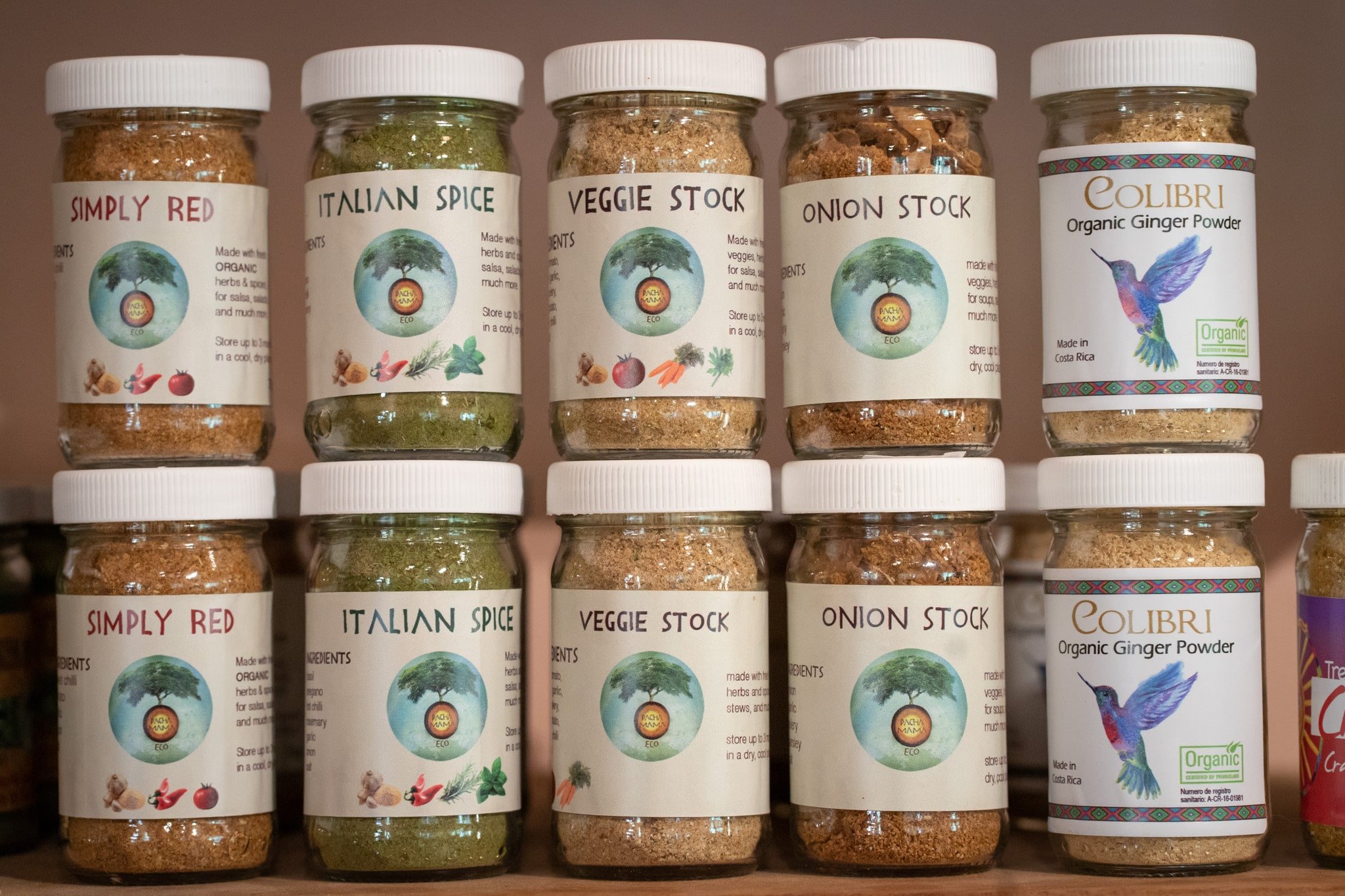
PachaMama Eco-Village is making a supreme effort to bring in only organic produce and is partnering with local farmers, reducing the carbon footprint as well as supporting local agriculture.
The food grown and harvested in Pachamama is 100% Organic. Many types of potent superfoods, leafy greens, and fruits are harvested on the land such as turmeric, noni, and cacao.

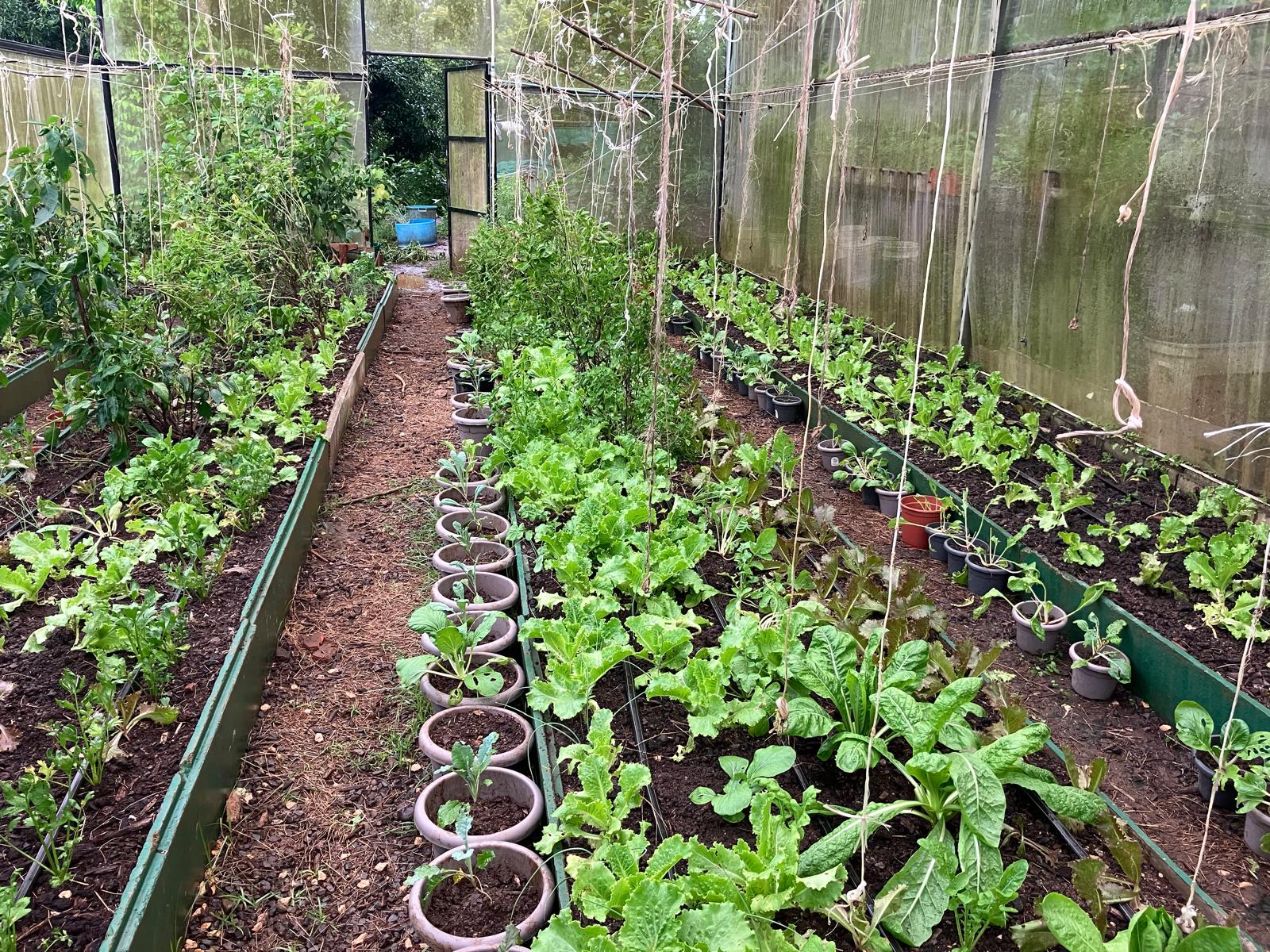
The greenhouse produces native trees along with a variety of greens, herbs, mushrooms, and superfoods.

Renewable energy in Costa Rica supplied about 98.1% of the electrical energy output for the entire nation in 2016. In 2014, 99% of its electrical energy was derived from renewable energy sources, about 80% of which from hydroelectric power. For the first 75 days of 2015, 100% of its electrical energy was derived from renewable energy sources and in mid 2016 that feat was accomplished for 110 consecutive days despite suboptimal weather conditions.
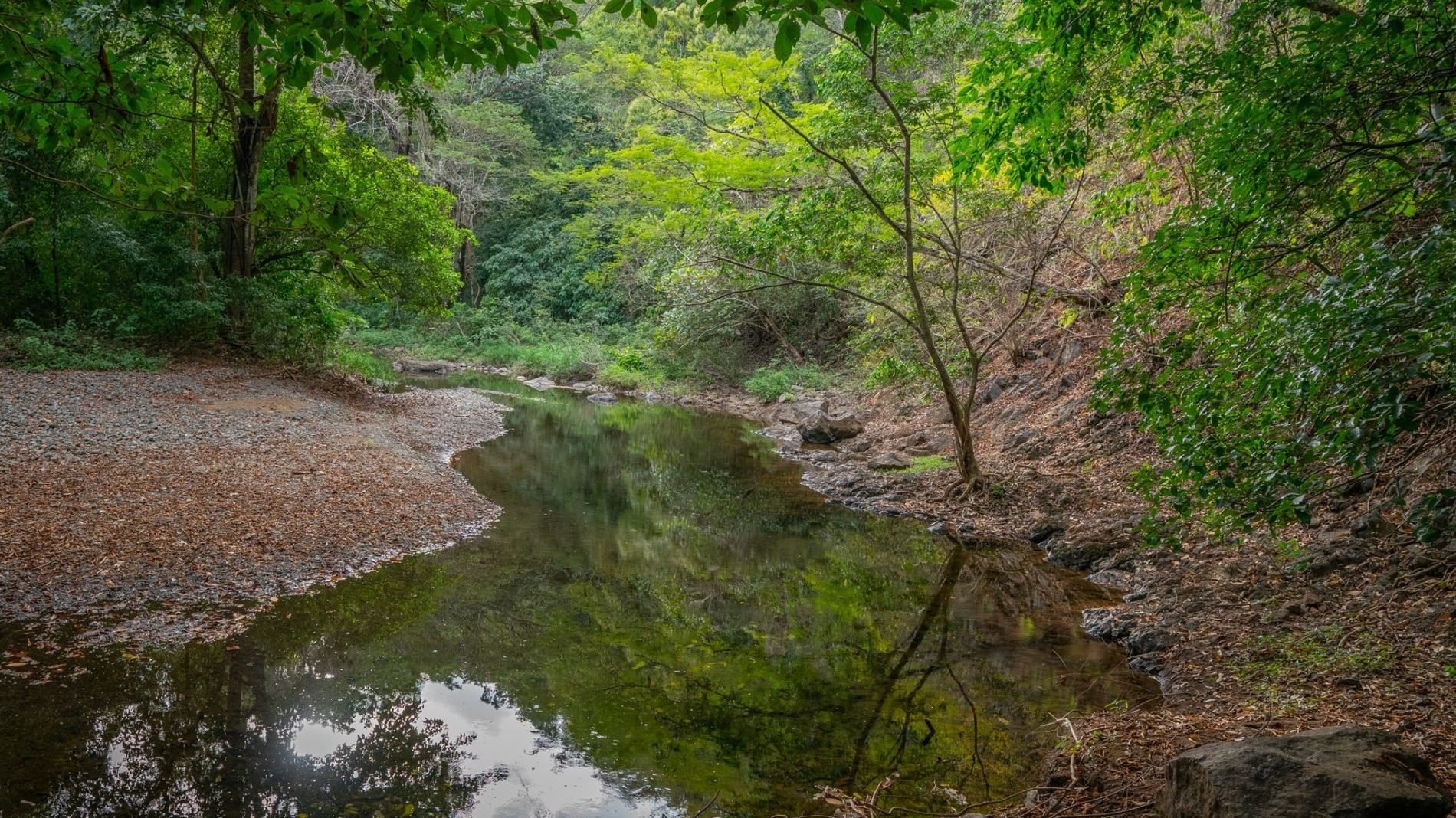
Grey-water systems have been installed in the restaurant, Wild Treats, Colibri bungalow neighbourhood, and some private homes in the eco-village. These systems reuse water from kitchens and showers for irrigation. Water is also conserved through the use of swales and retention lagoons. Rainwater is returned to the aquifer by using the natural features of the land to reduce erosion. In addition, millions of litres of water are saved every year through the use of compost toilets.

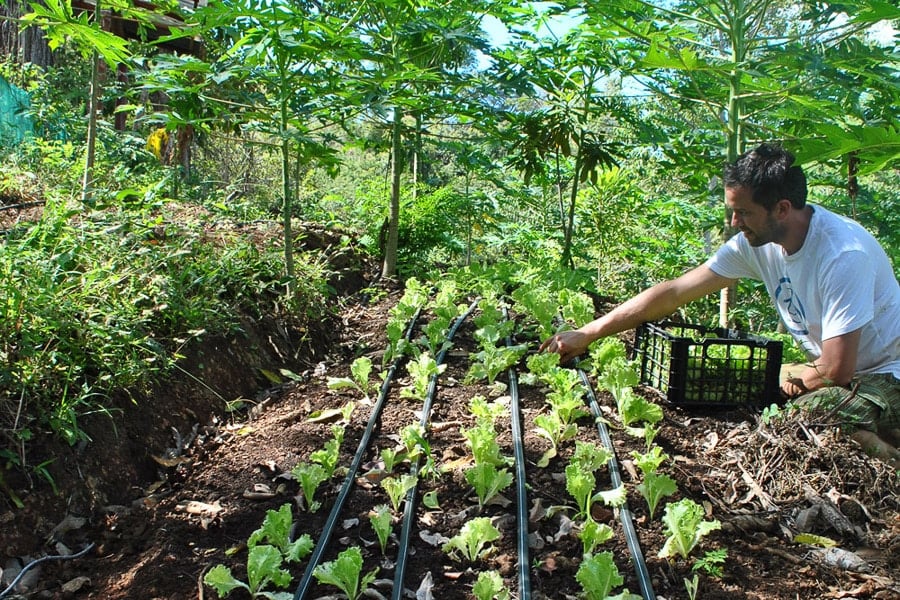
Botanists and herbalists from local communities visit and educate PachaMama Eco-Village on planting and restoring native and endangered species of plants and trees. The intention is to create a more hospitable environment for the native wildlife populations (from birds and insects to monkeys and big cats) to be restored and the forest ecosystem to thrive.

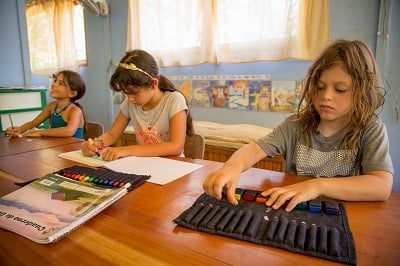
Eco activities are held regularly in the Jungle School of Eco-Village in order to share the responsibility with future generations. The children maintain their own garden, take initiative for beach cleanups with local communities, and spend a lot of time in nature interacting with the earth and nurturing a connection and reverence for the natural life all around.
